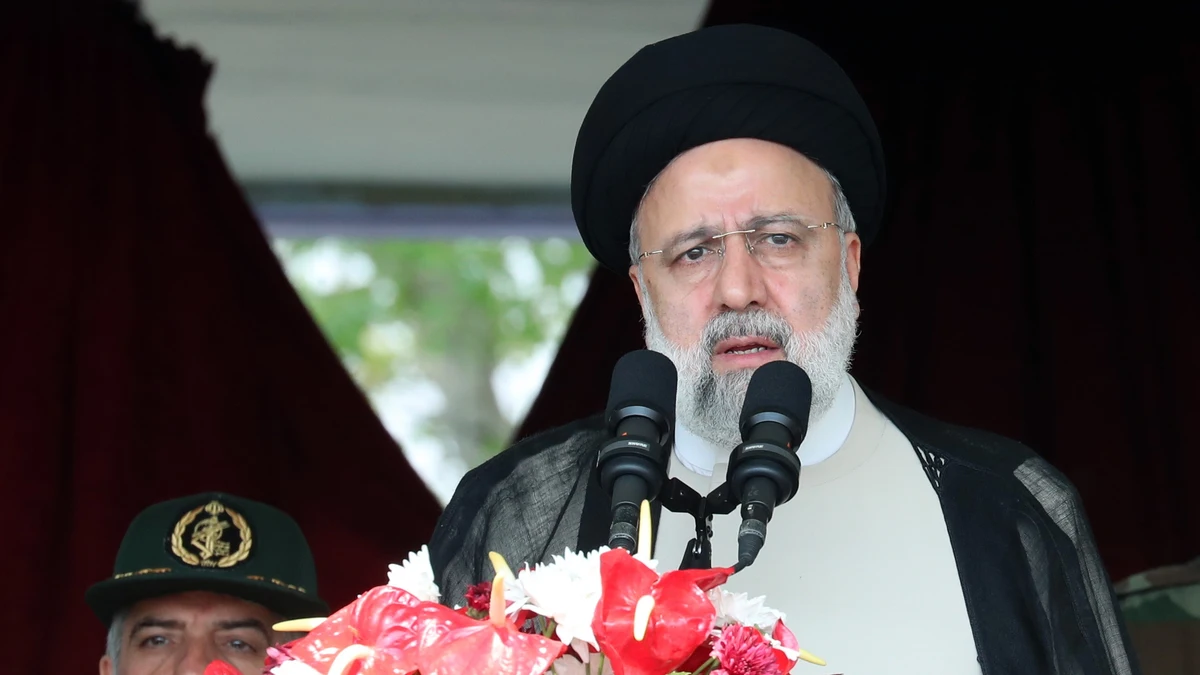
The ultraconservative president Ebrahim Raisi has died in a helicopter accident after a presidency and a judicial career marked by ultraconservative orthodoxywhich sparked the feminist protests of “life, women, freedom” and the intensification of repression in the Islamic Republic.
The Rescue teams located this Monday the helicopter in which Raisi was traveling and his companions, after hours of an extensive search in the mountains of the Varzeqan area, in the province of East Azerbaijan, where he disappeared a day earlier. She and Raisi were flying in the aircraft the Iranian foreign ministerHosein Amir Abdolahian, the governor of East Azerbaijan, Malik Rahmati, and the Friday prayer leader of the city of Tabriz, Mohammad-Ali Al-Hashem, in addition to an unknown number of crew members.
With his black turban, beard and serious face, the 63-year-old cleric was a man of the Islamic Republic system, as judge and president, and He was considered a protégé of the supreme leader, Ali Khamenei. In fact, he was among the favorites to succeed Khamenei, 85 years old.
Raisi assumed the presidency in 2021 after the elections with the smallest participation in the history of the Islamic Republic -48.8%-, marked by the veto of presidential candidates, which paved the way for him. This was his second assault on the Presidency. He presented his candidacy in 2017 and obtained 38% of the votes, behind the moderate cleric Hasan Rohaní (2013-2021).
The death of Mahsa Amini and the repression over the veil
If during the electoral campaign he tried to soften his ultra-conservative image, once his mandate began there were few doubts about his character. A character that led to his Government to intensify the policies of wearing the mandatory Islamic veilwhich had relaxed in recent years, and which led to the death of Mahsa Amini in September 2022 after being arrested for not wearing the hijab properly.
The death of the 22-year-old girl sparked the largest protests in years against the Islamic Republic and they only disappeared after a police repression in which 500 people died and eight people were hanged, one of them in public. The repression against artists, filmmakers, athletes or women critical of the Islamic Republic has continued until now as they continue with the recent arrests of women for not wearing a veil or the death sentences against rappers like Tomaj Salehi for supporting the protests.
Under his command Iran’s first direct attack against Israel took place, when on April 13 the Persian country launched hundreds of missiles and drones against its regional adversary, in a spectacular attack that, however, caused no damage. That attack was a response to the death of seven members of the Revolutionary Guard in the Iranian consulate in Damascus, and for which Tehran accused Tel Aviv.
A judicial career marked by executions
Before assuming the presidency on August 5, 2021, He passed through almost all the ranks of the Iranian Judiciary: He was of the Judiciary (2019-2021), vice president of the Assembly of Experts, first vice president of the Judiciary (2004-2014) and Attorney General of Iran (2014-2016).
Raisi was born on December 14, 1960 in Noghan, in the holy city of Mashad, into a religious family. descendant of the Shiite imam Hussein and, therefore, of the prophet Muhammad, hence his black turban. Following in the footsteps of his father and his maternal grandfather, who were also clerics, he studied until the age of 15 in religious schools in Mashad, and then moved to the holy and ultra-conservative city of Qom to continue his training.
He was a student of the supreme leader in one of the Shiite seminaries in Qom and later expanded his studies with a postgraduate master’s degree in Private Law and a doctorate in Jurisprudence and Private Law. With this training, he entered the world of the judiciary in the 1980s in the city of Karaj and in 1985 he made the leap to the capital when he was appointed substitute prosecutor of Tehran.
One of the darkest points of his career dates from that time. He was part of the committee that oversaw the executions of political prisoners in 1988, which ended the lives of thousands of opponents. Her role in those executions earned her the nickname “hanging judge”. He was always suspicious of the West, and especially of the United States, a country that included him on its sanctions list in November 2019.
Source: Lasexta
Ricardo is a renowned author and journalist, known for his exceptional writing on top-news stories. He currently works as a writer at the 247 News Agency, where he is known for his ability to deliver breaking news and insightful analysis on the most pressing issues of the day.












